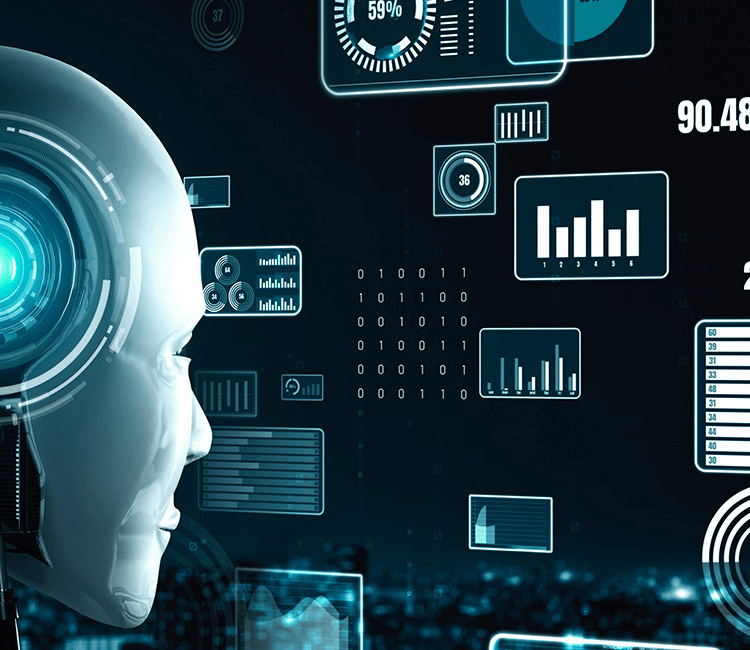6 Top Quantum Computer Applications with Real-World Examples
2025.01.13 · Blog quantum advantagequantum readyquantum supremacy
Quantum computers have long been considered the future of computing. Quantum computing harnesses the power of quantum mechanics, offering exponential processing capabilities that far exceed traditional computers.
As quantum hardware and quantum algorithms improve, the practical applications of quantum computers are rapidly expanding, promising transformative changes across industries such as healthcare, finance, cybersecurity, materials science, and artificial intelligence (AI).
1. Quantum Computer Applications in Healthcare and Drug Discovery

Traditional drug discovery processes involve trial and error in the lab, but quantum computers can simulate molecular interactions at a level of detail that classical computers cannot achieve.
This allows researchers to design new drugs, predict molecular behaviors, and optimize treatments much faster and more accurately. Quantum simulations can speed up the development of personalized medicine, creating tailored treatment plans for individual patients based on their genetic makeup.
Real-World Example:
SpinQ, a leading quantum computing company, cooperated with BGI-Research to leverage quantum computing in the biomedical field, with SpinQ playing a key role in advancing genome assembly solutions.
Traditional methods face challenges in sequencing and complex genomic regions, but SpinQ’s quantum approach optimizes genome assembly through variational quantum algorithms, improving efficiency and reducing resource consumption.

Also, Companies like Google and IBM have begun using quantum computing to simulate complex protein folding and interactions, a crucial aspect of drug development. These advancements hold the promise of accelerating the discovery of new therapies for diseases like cancer, Alzheimer’s, and viral infections.
2. Quantum Computer Applications in Financial Modeling and Risk Analysis

In finance, quantum computers can enhance portfolio optimization, asset management, and risk analysis. The inherent complexity of financial models, which involve large datasets and numerous variables, can be difficult to process efficiently with classical systems.
Quantum algorithms can help optimize portfolios, assess market risks, and analyze vast amounts of data at speeds previously unimaginable.
Real-World Example:
Quantum algorithms could enable banks and investment firms to model financial markets accurately, leading to improved trading strategies and more efficient risk management.
Based on SpinQ's real quantum computer, Longying Zhida, a subsidiary of Huaxia Bank, partnered with SpinQ to develop a quantum neural network model that aids in ATM removal decisions and supports the digital transformation of commercial banks' operations and management.
JP Morgan has already begun exploring how quantum computing can be applied to financial services, focusing on optimizing complex financial systems and improving algorithmic trading.
3. Quantum Computer Applications in Cryptography and Cybersecurity
Quantum computer is set to revolutionize cybersecurity. Classical encryption methods, such as RSA and ECC, rely on the difficulty of factoring large numbers and solving complex mathematical problems—tasks that quantum computers can do much more quickly.
With the advent of quantum computing, current cryptographic systems could become vulnerable to attacks, but they also offer opportunities to create more secure encryption methods.
Post-quantum cryptography is already being researched to develop algorithms that are resistant to quantum attacks. IBM, Microsoft, and other tech giants are working on integrating quantum-resistant cryptographic solutions, ensuring that as quantum computers evolve, data protection remains secure.
4. Quantum Computer Applications in Artificial Intelligence and Machine Learning

Quantum computers have the potential to significantly accelerate the training of machine learning models and enhance artificial intelligence. The ability to process and analyze vast amounts of data in parallel can lead to faster training times for AI models, improving their accuracy and capabilities.
Quantum computers can perform quantum-enhanced machine learning, which allows for more accurate predictions and optimizations in areas such as natural language processing, image recognition, and predictive analytics.
Real-World Example:
Companies like SpinQ are exploring how quantum computing can improve AI models, enabling breakthroughs in everything from autonomous driving to healthcare diagnostics.
5. Quantum Computer Applications in Materials Science and Energy
Quantum computers can play a pivotal role in advancing materials science, an area critical for developing new materials for batteries, solar panels, and other energy solutions. By simulating the behavior of atoms and molecules at the quantum level, researchers can discover new materials with specific properties—such as more efficient energy storage or advanced superconductivity.
Real-World Example:
Companies like Microsoft are exploring the potential of quantum computing to create better batteries and optimize renewable energy systems, potentially reducing global dependence on fossil fuels and accelerating the transition to green energy.
6. Quantum Computer Applications in Optimization Problems and Logistics

Quantum computers excel at solving complex optimization problems, such as scheduling, routing, and supply chain management. Businesses that rely on logistics—such as airlines, shipping companies, and delivery services—stand to benefit from quantum-enhanced optimization algorithms. These can help improve efficiency, reduce costs, and optimize resource allocation in real time.
Real-World Example:
Volkswagen and DHL are already experimenting with quantum algorithms to improve traffic flow for autonomous cars and optimize logistics routes, respectively. As quantum computing technology matures, these kinds of optimization problems will become more accessible and impactful.
Conclusion
Quantum computers are no longer just theoretical tools for researchers—they are increasingly becoming practical assets across multiple industries.
From healthcare breakthroughs and financial innovations to advances in cybersecurity and artificial intelligence, the applications of quantum computers are vast and varied.
As quantum technology continues to evolve, businesses and researchers continue to push the boundaries of what quantum computers can achieve, we can expect even more industries to be transformed by this powerful tool.
Featured Content






